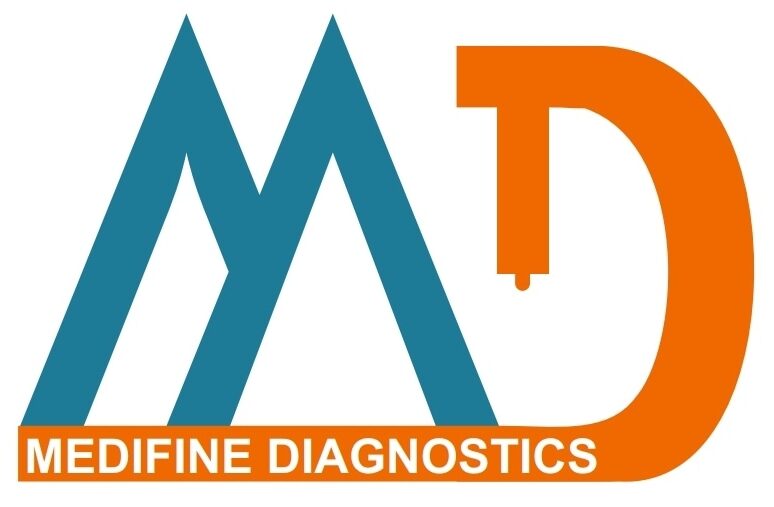Diabetes is increasingly becoming a global health challenge, affecting millions worldwide without showing clear symptoms. This disease operates quietly, which is why regular diabetes screening tests are crucial in catching it early. These tests play a vital role in preventing severe complications like nerve damage and heart problems. In this article, we will look into some core tests used for screening diabetes. From the simple blood tests to more comprehensive assessments, understanding these can empower you to take charge of your health.
Importance of Regular Diabetes Screening
Uncontrolled diabetes can lead to significant health risks. It can increase the chances of developing heart diseases and inflict nerve damage over time. Being aware of these risks underscores the importance of diabetes screening.
There are specific groups of people more at risk for diabetes, making screening even more important for them. These include individuals over the age of 45, those who lead sedentary lifestyles, and people with a family history of diabetes. Additionally, those who are overweight or belong to certain ethnic groups may also be at higher risk.
Screening guidelines suggest checking blood sugar levels routinely, especially if you fall into any of these risk categories. Moreover, societal and lifestyle factors in specific regions increase diabetes spread. Understanding these screening tests becomes essential because it can cater to effective treatment and management strategies.
Types of Diabetes Screening Tests
Various types of diabetes screening tests exist to help detect diabetes early on. Here is a closer look at the main ones:
- A1C Test: This test checks your average blood sugar level over the past 2 to 3 months. It is simple to conduct and provides a broad picture of how well your blood sugar is managed. However, certain conditions can affect its accuracy, such as anemia.
- Fasting Plasma Glucose (FPG) Test: For this test, you need to fast, not eating or drinking anything except water, for at least 8 hours before your blood test. The fasting glucose diabetes test measures your blood sugar levels and is often used first in screening for diabetes.
- Oral Glucose Tolerance Test (OGTT): This test is a little more involved. You will have to fast overnight, then have your blood sugar tested. Afterward, you will drink a sugary liquid, and your blood sugar levels will be checked at intervals over the next few hours. It helps in diagnosing gestational diabetes and other types when an A1C or FPG might not be enough.
- Random Plasma Glucose (RPG) Test: This test checks your blood sugar at any random time. It is convenient because it does not require fasting. However, it might not always provide a clear diagnosis, since results can be affected by eating or exertions earlier the same day.
Some newer tests and non-fasting diabetes screenings are being explored, promoting easier access and early detection. Consulting with a healthcare provider can guide you on the best diabetes screening tests near me available for you. This personalized approach supports better management of potential risks.
Preparing and Understanding Screening Test Results
Getting ready for blood tests for diabetes screening can vary, depending on the type of test. For example, you might need to fast for the fasting glucose diabetes test or HbA1c test for diabetes. It’s essential to follow your doctor’s instructions carefully to ensure accurate results. Discuss your medication intake with your doctor beforehand too.
Once you have your results, understanding what they mean for your health is crucial. Levels that are higher than normal might hint at pre-diabetes or diabetes. These indicate a need for lifestyle changes and additional checks. It’s always wise to consult your doctor for a comprehensive explanation of your results and to plan the next steps.
Based on early detection diabetes tests, there might be several measures you can adopt: – Eating a balanced and nutritious diet. – Incorporating regular physical activity. – Monitoring your blood sugar levels regularly.
These actions can help you manage or even prevent diabetes. By engaging in routine diabetes risk assessment, you can remain informed and ahead in managing health. Regular routine diabetes screenings hold vast importance, ensuring timely interventions and a healthcare strategy keeping potential diabetes complications at bay.
Understanding diabetes screening tests is essential for a healthier future and reducing the impact of diabetes on daily life. With regular checks and a focus on lifestyle adjustments, managing or preventing diabetes becomes much more achievable.
At Medfine Diagnostics, we provide comprehensive screening and expert advice to help you take control of your health. Don’t wait—start making informed choices today for a healthier tomorrow!

